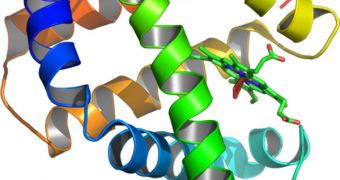A team of scientists in the United States announces that it managed to obtain new insights into how the activities of a single gene help parasites withstand the harsh environment of the host cells they infect.
The study could help experts develop new therapies and drugs aimed at blocking the action of this gene, without which the invaders would have no chance of infecting living cells.
This research focused mostly on dangerous forms of the parasite Toxoplasma gondii, but the findings apply to other parasites as well, say experts at the Washington University School of Medicine in St. Louis (WUSM).
A single gene, called ROP18, plays an important role in suppressing the expression of host cell proteins that would normally destroy the protective bubble parasites build around themselves during infections.
In other words, our cells are perfectly capable of defending themselves from pathogens via their own proteins, if only they are given the chance.
As such, scientists say, future attempts of stemming off infection may not be focused on destroying the actual parasite, but on paving the way for the cells to do that themselves. Details of the new work appear in the latest issue of the scientific journal Cell Host & Microbe.
“If we can find therapies that block ROP18 and other parasite proteins like it, that could give the host the upper hand in the battle against infection,” explains scientist Sarah Fentress, the first author of the new study paper.
She is a graduate student in the laboratory of L. David Sibley, PhD, who is a WUSM professor of molecular microbiology, Science Blog reports.
“The exact role of ROP18 and related proteins in human disease remains to be studied. But mice are natural hosts of Toxoplasma, so studies in laboratory mice are relevant to the spread of infection,” the professor adds.
This line of research is very important from a public health perspective, given that official statistics estimate one in 4 individuals is infected with Toxoplasma.
Symptoms are usually not serious, but the thing about this parasite is that it causes nasty infections when the immune system is down, such as for example following an accident, or a transplant.
Still, there is the possibility of the microorganism infecting otherwise-healthy individuals. When this happens, a number of conditions may result, such as eye or central nervous system disease and congenital diseases in babies.
Cases in which pregnant women lose their babies have also been reported. Funding for the new study came from the US National Institutes of Health (NIH) and the Veteran’s Administration.

 14 DAY TRIAL //
14 DAY TRIAL //